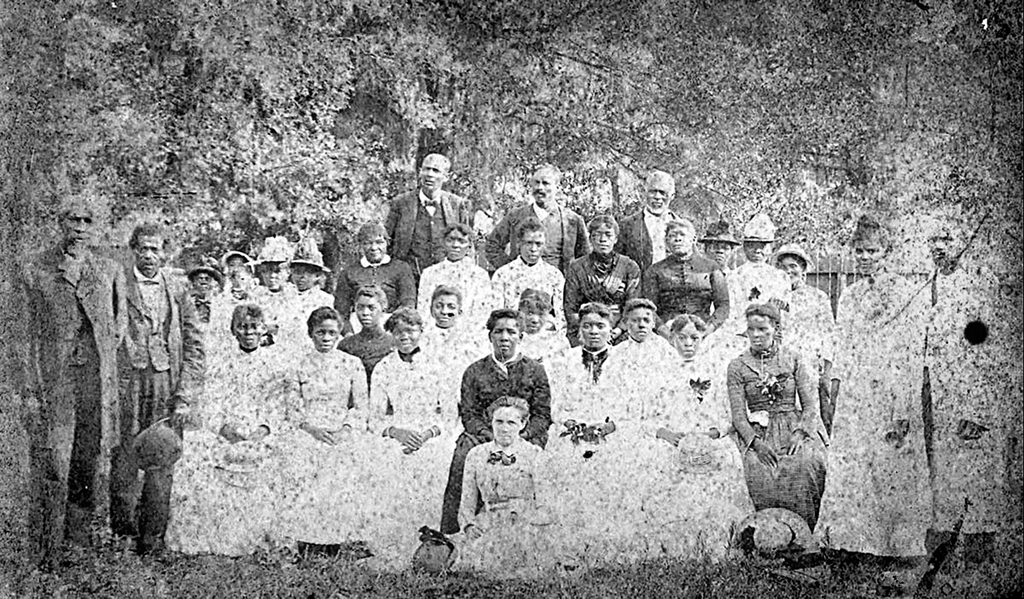For over 200 years, white supremacy destroyed families and dehumanized more than 12.5 million Africans from the Central and West African nations in a practice known as chattel slavery.
From as early as 1619, African people were traded, with the first recorded instance being documented by planter John Rolfe. Rolfe wrote of a Dutch trading ship, which in actuality was an English pirate trip, traveling up the James River to trade food and supplies for enslaved people in what is now known as Hampton, Virginia, kickstarting the creation of one of the most well-known societies built on enslavement.
Considered to be one of the most profitable institutions in international history, nearly $3.5 billion was made by enslavers through treating Black people as property. Defined as one of the most brutal forms of enslavement, chattel slavery likens people to livestock as they become the property of enslavers, forced into labor and at risk of being traded and sold.
On plantations in the South, victims of chattel slavery were forced to toil in harsh conditions, clearing land, hauling wood, picking cotton, digging ditches and working inside the homes of their enslavers. Forced to live in small quarters, the enslaved people were exposed to unsanitary conditions and the consistent threat of disease, particularly on rice plantations where malaria was prominent. Child mortality on these plantations was estimated to be 66% on average, going up to 90% in some cases.
Although chattel slavery was concentrated in the South, the North was complicit in the institution, relying on products cultivated through enslavement and entering into business with Southern enterprises.
While earlier legislation was passed focusing on addressing chattel slavery, such as “the Act Prohibiting Importation of Slaves,” the end of enslavement is recognized with the issuing of the Emancipation Proclamation.
Issued on Jan 1, 1863, and actualized until June 19, 1865, the proclamation changed the legal status of over 3.5 million enslaved Black Americans from enslaved to free. Through the 13th Amendment, enslavement was officially made unconstitutional in the U.S.

To what extent was chattel slavery a global institution, not just an American one?
Evidence of chattel slavery has been found as far back as Mesopotamia, considered the site of the earliest transition in the First Agricultural Revolution. Instituted in the “Code of Hammurabi,” laws 278 to 282 regulated enslavement, providing warranties and guidelines for purchases abroad.
Other ancient civilizations, such as ancient Egypt, ancient Greece, ancient China, ancient India, Babylonia, Persia and the Roman Empire, also have similar evidence of the implementation of chattel slavery, though the focus was more on debt-slavery, criminal punishment and prisoners of war.
Chattel slavery has also been extensively documented in countries alongside the Nile River valley, the Sahel and North Africa, as observed by records written by Arabic and European traders.
The African country Mauritania has most famously been linked to chattel slavery in the 21st century, despite passing a 1981 law abolishing it. Although the government has denied accusations, UN leaders have maintained that the country’s leaders have not fully enforced legislation against enslavement. Per CNN, an estimate of 10% to 20% of the country’s 3.4 million population is enslaved.
Several figures in the country have been outspoken about Mauritania’s connections to chattel slavery.
Lawyer Fatimata M’baye has consistently advocated for human rights in the nation, founding the Mauritanian Human Rights Association in 1991. Following a report on the country’s connections to enslavement on French TV, she and the organization’s president were arrested for being a part of a “non-government-approved association,” serving 13 months in prison.
For her work combating enslavement and oppression, M’baye has been awarded the Nuremberg International Human Rights Award, recognition in the Trafficking in Persons Report, and the 2016 International Women of Courage award.
The Initiative for the Resurgence of the Abolitionist Movement in Mauritania, or IRA-Mauritania, has also been vocal about the country’s practices. Founded in 2008 by Biram Dah Abeid, the son of an enslaved person, and co-led by vice president Brahim Bilal Ramdane, the group has organized mass sit-ins, hunger strikes and marches against enslavement.
Throughout their efforts, the two have suffered from numerous violent interactions, culminating in hospitalizations and prison time, according to Freedom Now. Most recently, Abeid was imprisoned for reasons many deemed as a means to prevent his participation in the country’s parliamentary elections. Now a deputy of the National Assembly, he was elected from his prison cell.
“The continued existence of slavery and other slavery-like practices in Mauritania regrettably demonstrates that relevant laws are not enforced in practice and that a social transformation and a change in the mindset of the country’s leaders is needed in order to fully recognize and address slavery instead of denying its existence,” said UN Special Rapporteur Tomoya Obokata in a report.
Overall, as of today, the National Underground Railroad Freedom Center estimates that nearly 21 million men, women and children are enslaved today, despite chattel slavery being illegal worldwide. Per the organization, five major forms of enslavement continue to exist in the form of forced labor, debt labor, sex enslavement, domestic servitude and child enslavement.
Of these 20.9 million enslaved people, approximately 90% are enslaved by the private economy in efforts to maintain cheap labor costs.
“This system [chattel slavery], which allowed people — considered legal property — to be bought, sold and owned forever, was lawful and supported by the United States and European powers from the 16th to 18th centuries,” wrote the organization in their latest report. “Thankfully, slavery is no longer legally protected anywhere in the world. Yet, the control and exploitation of one human being by another still remains.”